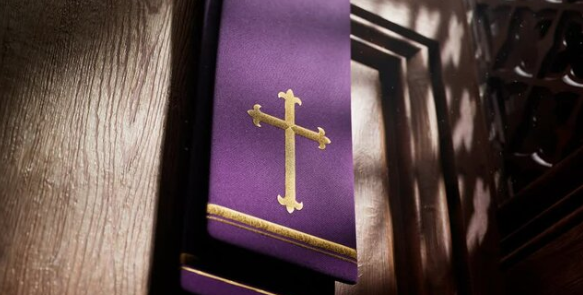Reconciliation
Healing and strengthening our relationship with God and others.
Forgiveness plays a vital role in health and growth of our most important and closest relationships. We frequently ask forgiveness for small daily mistakes or omissions as a way to say “I care about you and I am working hard to do better.” If we have offended, hurt, or neglected someone we care deeply about, we not only ask for forgiveness but find a way to “make it up to them.” By doing this we experience healing, freedom, and joy when we are forgiven and given another opportunity to show our love. As Catholics, the Sacrament of Reconciliation holds great significance in our lives. We are called to love God and others as God has loved us. We don’t always get it right, and that’s okay. God is always ready to forgive, to encourage, and to support us as we strive to be and do better. God waits for us, ready to give us all the graces we need through the Sacrament of Reconciliation. We encourage all parishioners, young and old, to partake in this sacrament as often as needed. God’s mercy and grace are boundless!
“On the evening of that day, the first day of the week,” Jesus showed himself to his apostles. “He breathed on them, and said to them: Receive the Holy Spirit. If you forgive the sings of any, they are forgiven; if you retain the sins of any, they are retained” (Jn. 20:19, 22-23)
Reconciliation Schedule:
Thursday (at Holy Rosary): 12:00pm Promptly, until all confessions have been heard
Saturday: 3:00pm Promptly, until all confessions have been heard
Opportunities for reconciliation are also offered by appointment with Fr. Matthew O’Leary and Fr. Stephen Okumu
Reconciliation FAQs:
I haven’t been to reconciliation in a while. Is there a guide to help me prepare my confession and review the prayers?
Yes! You can read and/or download the Guide for Reconciliation from our website.
What happens if I forget a step or one of the prayers? Not to worry. All of our confessionals have copies of the steps and prayers. Our priests are always happy to help walk you through the process.
I want to go to reconciliation but I am ashamed about confessing some of my sins to the priest. A little bit of nervousness is normal even for the those who go to reconciliation often. The priest is not there to judge but to be the instrument and voice of God’s grace and forgiveness. God knows our hearts and holds space for us to have the healing experience of saying the words, “I am sorry” and hearing the words, “I forgive you.” As for the things that we might struggle to confess, just remember that all of our sins are but “a drop of water compared to the ocean of God’s mercy.”
Steps for Reconciliation:
Preparing for confession and reconciliation
Examine your conscience, using the Ten Commandments (Ex 20:2-17), the Golden Rule (Mt 7:12) or other teachings of Jesus (eg. Mt 22:37-40; Mt 25:31-46 ).
Visit priest and tell him how long it’s been since your last confession—no need to be afraid (Is 43:1).
Confess your sins—committed since your last confession—what you have done and what you have failed to do in thought, word, and deed.
The priest is a spiritual doctor, sitting in the place of the Lord, and might ask a question or give some direction over how to confront the sin or situation in question. (Lk 24:47; Jn 8:11: Jn 20:23; James 5:16)
Pray aloud an act of contrition, telling God of the sorrow for your sins and your desire to be renewed by God’s Grace. You may use the version below or similar words.
Receive sacramental absolution from the priest. Gratefully hear the voice of Jesus, as the priest says “I absolve you of your sins”—voicing the forgiveness offered by God. (Lk 24:47; Jn 8:11; Jn 20:23)
Complete the penance the priest assigns to take the first steps on a new way, restored by God’s healing Grace. (Rom 2:6-7; James 2:17, 26)
Act of Contrition
My God, I am sorry for my sins with all my heart. In choosing to do wrong and failing to do good, I have sinned against you, whom I should love above all things. I firmly intend, with your help, to sin no more and to avoid what-ever leads me to sin. Our Savior, Jesus Christ, suffered and died for us. In his name, my God, have mercy. Amen.
To return to communion with God after having lost it through sin is a process born of the grace of God who is rich in mercy and solicitous for the salvation of men. One must ask for this precious gift for oneself and for others. CCC1489
The Sacrament of Reconciliation a gift from our gracious Lord. It frees us from the burden of sin, grants us a fresh start, and enables us to grow closer to God and to one another. May we seize this opportunity, with open hearts and open minds, to embark on a journey of healing, renewal, and wholeness. God’s abundant blessings be with you!



